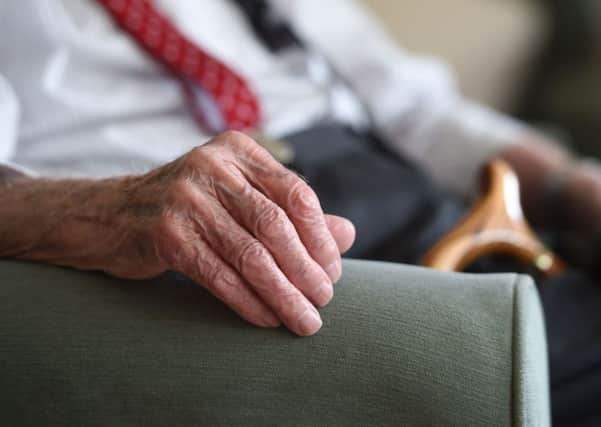Rachel Reeves: An ordinary conversation can build a world less lonely


In typical Jo style, she not only reached out to a Conservative MP to be her co-chair, but a Lancastrian too – Seema Kennedy, the MP for South Ribble.
The commission was mentioned for the first time in this very paper, following The Yorkshire Post’s Loneliness: The Hidden Epidemic campaign. Jo had sought out leading organisations working tirelessly on the issue of loneliness to join the commission, and together they got to work.
Advertisement
Hide AdAdvertisement
Hide AdFor Jo, however big and complex a problem, there was always a solution. After Jo was murdered, Seema invited me to work with her to continue her mission and today we publish our call to action: Combatting loneliness one conversation at a time.
We need to take urgent steps. Lonely people tend to visit GPs more often, stay longer when in hospital and find it harder to cope and heal, adding even more to pressures on the health service. Statistics suggest loneliness is as bad for your health as smoking 15 cigarettes a day.
The Commission and our 13 partner organisations are today calling for a UK wide strategy for loneliness across all ages, led by Government, but built on the insight, expertise and capacity of many others including the NHS, voluntary and community sector and business.
I have thought a lot over the past year about the question of whether we have become lonelier as a society.
Advertisement
Hide AdAdvertisement
Hide AdOur society is increasingly disconnected. Poverty is increasing, which not only causes deprivation but isolation too. Young people are left to navigate their own way into the future with little support, while more and more of us live alone with our phones or tablets for company. The institutions that once brought us together – trade unions, churches, the local pub, the workplace – are now marginal or they have changed out of recognition.
As I said earlier this week, perhaps if Beveridge were alive today, then maybe alongside the need for bread and health he would add the need for attachment and connection.
I’m sure he would also follow up on his belief in voluntary action and the importance of giving more power to people.
The solutions to loneliness have to come from the communities who experience it first-hand. That’s why we’re asking for Government to work with others on an innovation fund to stimulate radical new solutions to loneliness across all ages.
Advertisement
Hide AdAdvertisement
Hide AdI see so many examples on my own doorstep in Leeds. Bramley Lawn has been transformed from a struggling day centre into a thriving hub running support for people with dementia, bringing together young and old in a wide range of activities.
Not far from my constituency, the Robin Lane Health and Wellbeing Centre in Leeds provides wellbeing activities and a community cafe, alongside delivering frontline healthcare.
This is ultimately a call to action. Loneliness can affect any one of us at any time. This week, much of Yorkshire has been covered by snow. As a result of that, we’ve seen people in the street strike up conversations – while others knock on a neighbour’s door to check they are okay.
I know the people of Yorkshire are better at this than most – but it ought not take an unusual event or a moment of meteorological curiosity for us to feel we can say hello or call in on a friend or neighbour.
Advertisement
Hide AdAdvertisement
Hide AdWe must try to work to break these societal codes and barriers down. Like Jo said, loneliness is “something many of us could easily help with. Looking in on a neighbour, visiting an elderly relative or making that call or visit we’ve been promising to a friend we haven’t seen in a long time”.
Starting a conversation each day in your neighbourhood can be a radical act of community service. We can change the world around us, one conversation at a time. Whether it be in the doctor’s waiting room or the supermarket queue, the smallest of actions can brighten someone’s day.
Just the other week a young woman tweeted us to say she was wearing a #happytochat badge on the bus and a man approached her to chat, who hadn’t spoken to anyone for an entire week. We cannot be the society that lets this kind of thing happen. We need to take action now.
So let us do Jo proud together. From national government to the local community group, to the business, to the individual. Let us work for a fitting legacy to Jo’s vision for a world less lonely. And let’s all be #happytochat to each other a little more.
Rachel Reeves is MP for Leeds West and co-chair of the Jo Cox Loneliness Commission which is launching its manifesto in Batley today. (Dec 15)